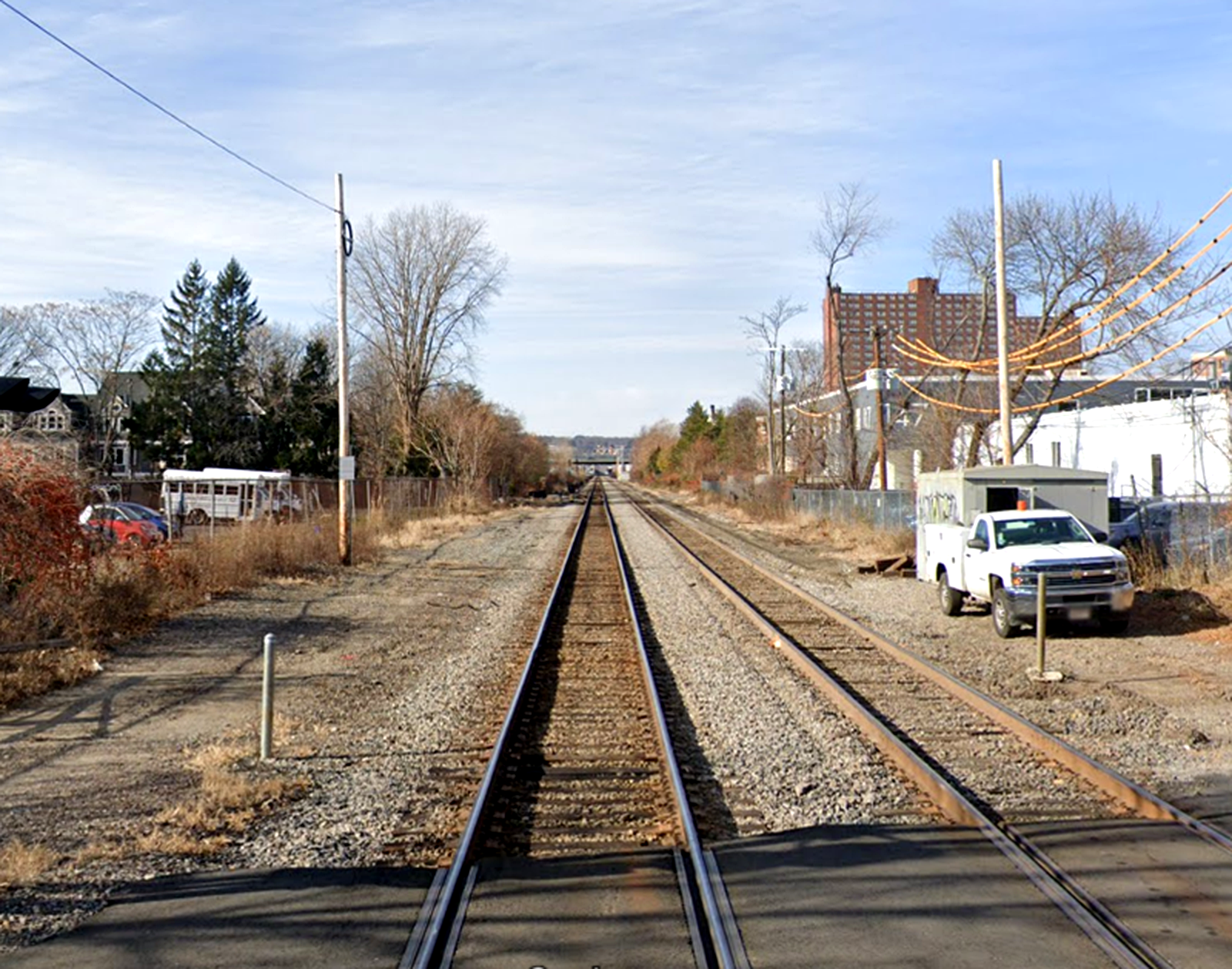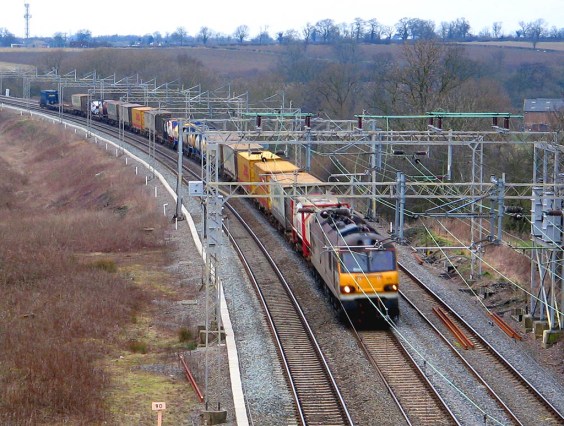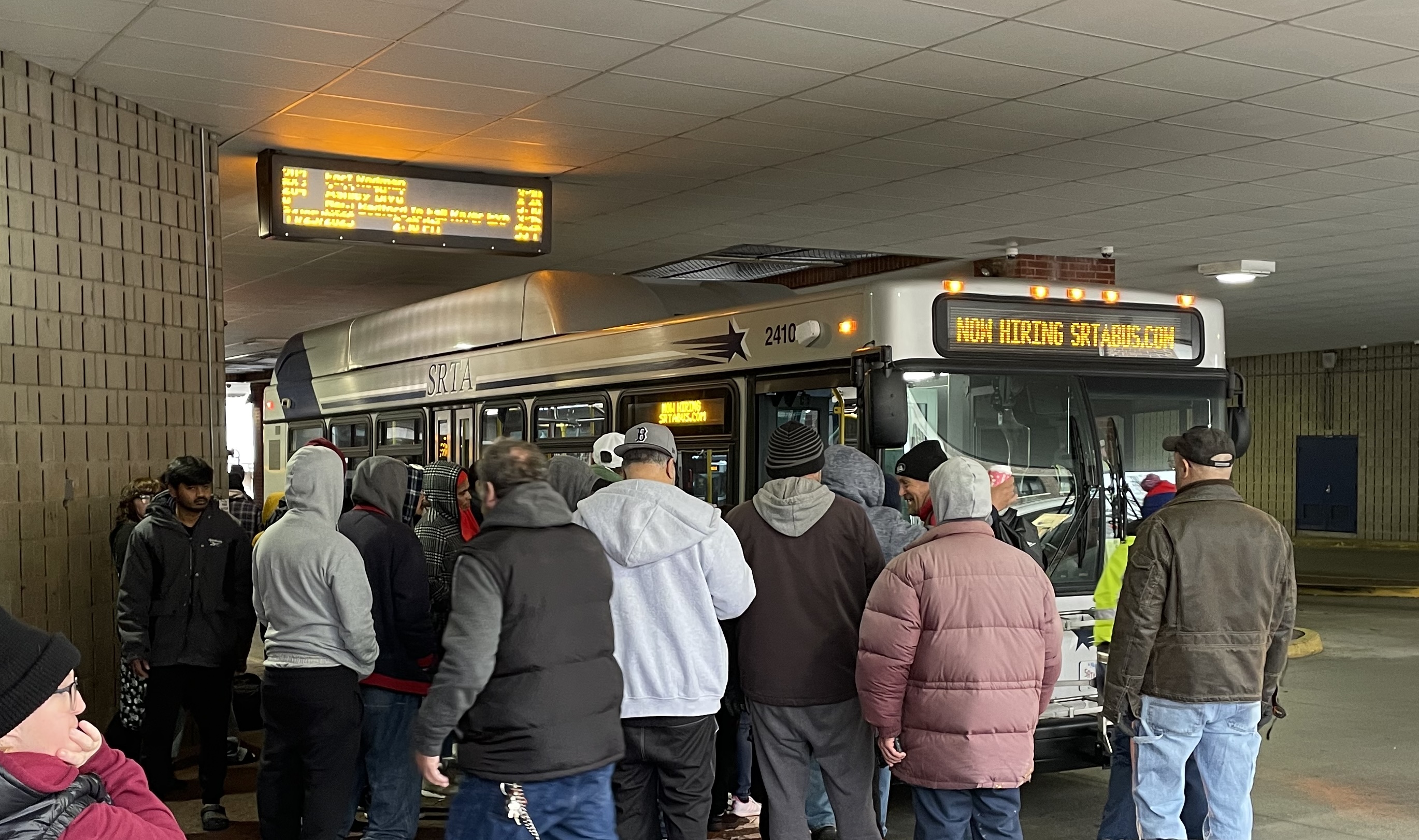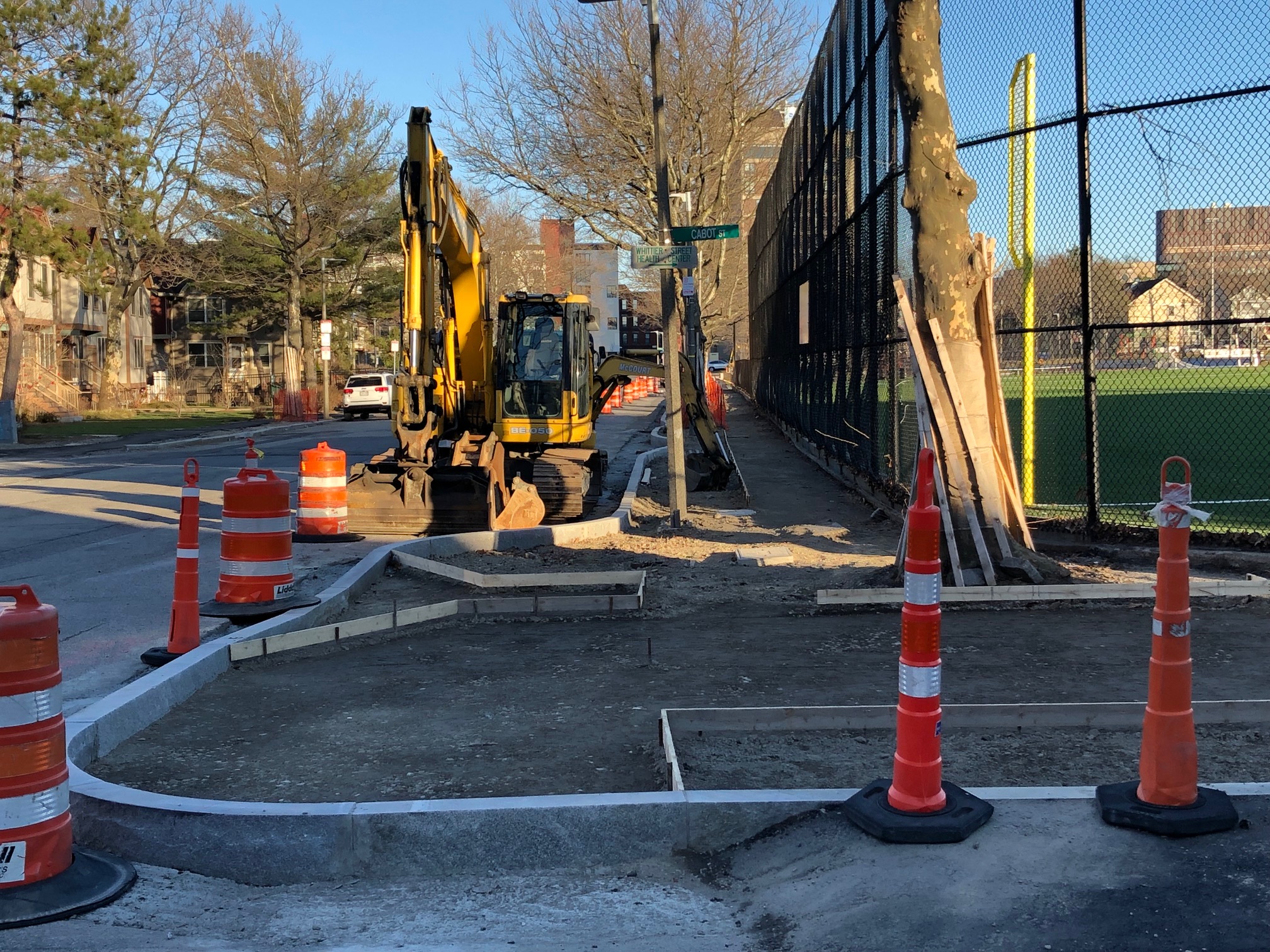While the federal government has been pulling grant funding to exploit political divisions, communities like Cambridge are working to keep neighborhoods and people connected by replacing cancelled grants from Washington with alternative sources of funding.
Last year in, StreetsblogMASS reported on the Cambridge projects funded by the Reconnecting Communities and Neighborhoods (RCN) program, including the Danehy-New Street Connector Path, and a pedestrian and bicycle crossing of the MBTA Fitchburg Line in North Cambridge.
Originally, the Biden administration had pledged $2.4 million for the Fitchburg Line crossing project. However the Trump administration and Republicans in Congress cancelled all but $400,000 of that grant earlier this summer.
The cuts nearly halted the project in its tracks – but local partnerships and new funding opportunities are keeping it alive.
The project
The Fitchburg Crossing Project aims to implement pedestrian and bicycle crossing over the MBTA Fitchburg Line.
That rail line divides several affordable housing neighborhoods along Rindge Avenue, north of the tracks, from Danehy Park and the Fresh Pond Mall, to the south.
Despite the risks of train traffic, residents reportedly walk across those tracks regardless.
Additionally, the City planned to develop a multi-use path along the north side of the Fitchburg line, from Steel Place near Alewife Station to Sherman Street in the east, further improving pedestrian and cyclist connectivity in that area.

The City of Cambridge applied for a federal grant from the Reconnecting Communities and Neighborhoods (RCN) program to fund the project after a feasibility study published in April of last year.
In spring 2024, the U.S. Department of Transportation pledged $2.4 million to move the work forward.
Funding rescinded
The last time StreetsblogMASS reported on this project, it was still in its early stages, having had a number of public meetings to solicit community input, while working to bring on a designer to further develop the design plans.
Then, on July 4th, President Trump signed the so-called "One Big Beautiful Bill Act," which states that "the unobligated balances of amounts made available to carry out section 177 of title 23, United States Code, are rescinded."
That language most of the pledged grant funding for the Fitchburg Line crossing project. Only $400,000 for the grant had been obligated before Congress eliminated the rest of the funding.
StreetsblogMASS got in touch with Brooke McKenna, the Commissioner of Transportation for the City of Cambridge, who shared more details and reflections on how the city got to this current moment, and how they will continue the work amid a rapidly changing funding environment.
A way forward
McKenna told StreetsblogMASS that the City knew “by late spring” that their funding could be at risk.
“It was disappointing that the feds reneged,” said McKenna, but the city was already working on another path forward.
“We were able to work with the MPO (the Boston Metropolitan Planning Organization, a regional planning group that allocates federal transportation funding for projects across eastern Massachusetts) on the alternative funding to backstop the federal funds,” McKenna said.
Cambridge was able to secure $2 million to replace what was lost from the Reconnecting Communities grant. The MPO officially voted to award $2 million to the project in June, which will be represented in their 2027 Fiscal Year Transportation Improvement Program budget.
This transition caused some small delays, but “it was an overall smooth transition since the framework was already in place,” McKenna explained.
As for what comes next for the Fitchburg Crossing Project, the City is set to finalize procurement and contracting, and once that is set, the design and community outreach process will get started in the fall of this year.
The Commissioner is looking forward to the work to come, as this local improvement connects nicely with ongoing work, like the Danehy-New Street Connector Path which will “seamlessly” extend access from Rindge Ave, to Danehy Park, to Fresh Pond, over to the Cambridge Watertown Greenway.
“Each project in and of itself is a really great improvement. When you pick them, it's just the whole is more than the part,” said McKenna. “Each piece in this connective tissue just incrementally makes the whole system so much better for people and just expands people's access, which is what we want.”
Despite the challenges that persist when working with the federal government at this time, there is a silver lining.
“The fact that we were able to work with the MPO to replace the loss of federal funding is just such a great example of how at the state level, we can come together to balance out some of the challenges we're seeing at the federal level,” said McKenna.
The City of Cambridge will deliver updates through email newsletters and on the Fitchburg Crossing project website.






